https://www.jthughes.co.uk/Blog/View/Easy-Ways-to-Reduce-Range-Anxiety-in-an-Electric-Car/12554
Easy Ways to Reduce Range Anxiety in an Electric Car

Thinking about buying an electric car but you’re freaked out about making the switch due to the phenomenon know as ‘electric car range anxiety’?
Even though there's been a huge rise of electric vehicle sales across Shropshire there are still a significant number of owners and potential electric vehicle drivers who understandably experience range anxiety - who hasn't freaked out when their phone's battery is about to die, let alone your car.
But is range anxiety really warranted? We don't think so!
At JT Hughes, we totally get it. The thought of running out of juice on the road can be super stressful and is a common topic of conversation with our customers.
EV range anxiety is more psychological rather than the range of electric cars or the availability of charging points.
Most of our customers who purchased an electric vehicle rarely encounter any problems and when we ask them if they will purchase another one in the future, it’s a resounding yes!
So, what do they know that you might not?
In this article, we'll explore the causes and impact of range anxiety, as well as the potential solutions to this problem.
By the end of this article, we hope to have provided you with the information you need to understand and overcome range anxiety and consider the benefits of electric cars.
Ads by JT Hughes
Scroll to continue with content
What is electric vehicle range anxiety ?
Range anxiety is the fear of running out of juice in an electric vehicle and not being able to make it to your destination or to a charger.
This is a major challenge mostly because of how long it takes EVS to recharge.
You can't just fill a bucket with electricity and then pour it into your car's battery like a fuel tank (unfortunately).
Charging your electric car is a different experience that offers a variety of benefits.
While it may take longer than refuelling at a petrol station, charging your EV is typically more convenient and cheaper in the long run.
And with technology advancing rapidly, the charging process is becoming quicker and easier every day.
One of the biggest advantages of owning an electric car is the freedom it offers from having to constantly stop at petrol stations.
However, this doesn't mean petrol stations will eventually disappear.
Many stations are investing in fast chargers to support transport and delivery companies, so you can still find charging options when you need them.
As a driver, you'll simply be less dependent on petrol stations and fast chargers.
You can charge while you park
In this day and age, we're all about convenience and making our lives as easy as possible.
And in the world of electric cars, that's exactly what you get. Imagine starting each day with a full tank of fuel, no matter where you go.
For our electric car customers, that dream is a reality.
When you own an EV, you can charge it whenever and wherever you like.
While there are still not enough charging stations to keep up with demand, they are popping up in a variety of locations, from workplaces and retail spots to hotels, restaurants, public car parks, petrol stations, supermarkets and even cinemas and golf courses, you'll always be able to find a charging station nearby.
As electric cars become more popular, the availability of charging points is expanding rapidly.
So, whether you're heading out for a road trip or just running errands around Shrewsbury, you can rest assured that you'll be able to keep your car fully charged no matter where you go.
Easy Ways to Reduce Range Anxiety in an Electric Car
If you want to reduce range anxiety when driving an electric car, here are our top tips!
1. Get more than you need.
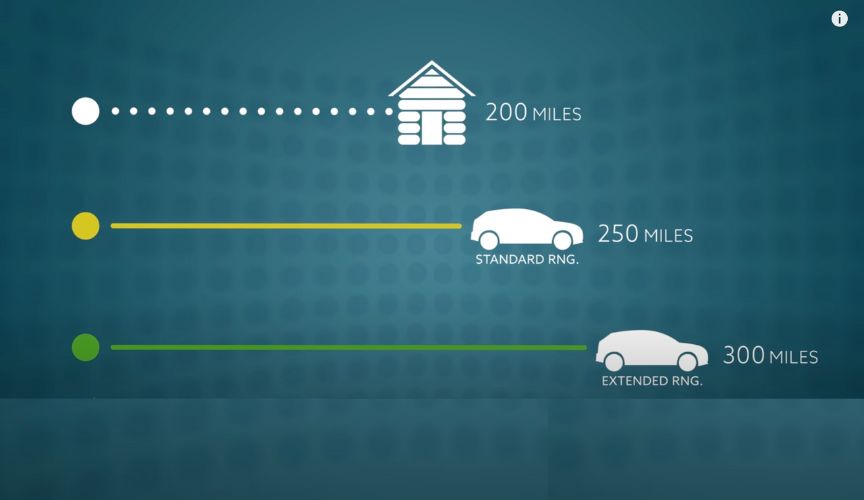
Consider getting an EV with more range than you actually need. For example, if you regularly drive 200 miles to work, don't settle for an electric vehicle with a range of only 250 miles.
While it might technically work, it's always better to have a little extra buffer.
If you can afford it, go for a model that offers 300 miles of range or more.
That way, you'll have more flexibility if you need to take a detour due to a car accident or if you're loaded down with suitcases.
Without that extra range, you might end up feeling anxious about whether or not you'll make it to your destination without needing to stop and charge along the way.
2. Choose EV Models with Heat Pump HVAC Systems
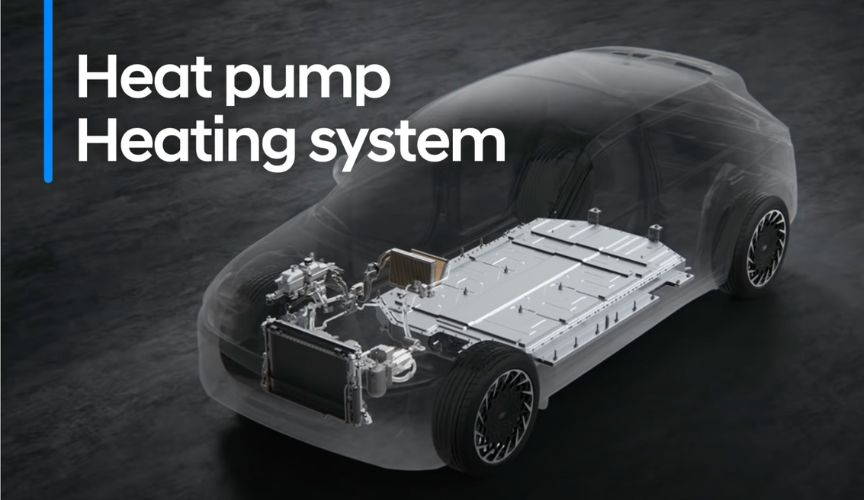
If you can, consider investing in an EV model that comes with a heat pump-based HVAC system, or add it as an optional extra.
Heat pumps are much more efficient than resistive heaters, which can guzzle up electricity and negatively impact your EV's range in cold weather.
With a heat pump, you'll be able to go farther between charges and enjoy a more efficient heating system that won't drain your battery.
3. Pay attention to Wheels & Tyres
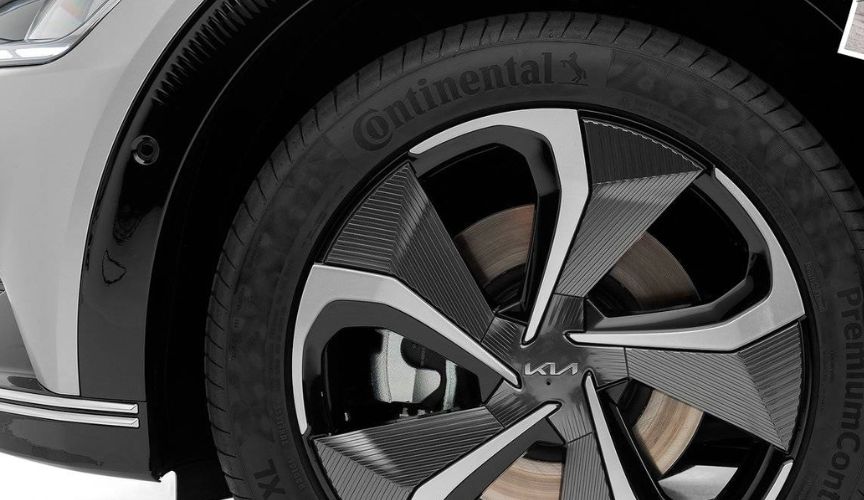
If you're looking to reduce range anxiety with your electric vehicle, it's crucial to pay close attention to the wheels and tyres that come with it.
Studies have shown that the size and type of wheels and tyres can have a significant impact on your EV's range.
For instance, some EV models can achieve a range of up to 250 miles with 19-inch wheels, which isn't too shabby.
However, if you opt for 20-inch wheels, your range can plummet to just 227 miles - a difference of 43 miles!
So, keep an eye on the wheels and tyres that come with your electric vehicle, as they can have a major impact on your overall range.
4. Check the weather & plan

When driving an EV, it's important to keep in mind the impact that weather can have on your battery, especially in cold temperatures.
Just like traditional fuel vehicles, cold weather can reduce efficiency, but EVs are affected much more significantly.
In fact, testing has shown that electric vehicle range can be reduced by up to 41 percent in 20-degree Fahrenheit weather when the heater is cranked up.

That's a huge reduction! To minimise the impact of cold weather on your range, plan your trips accordingly and as mentioned in point 2, consider investing in an EV model that comes with a Heat Pump HVAC System.
5. Use 'schedule departure time feature'
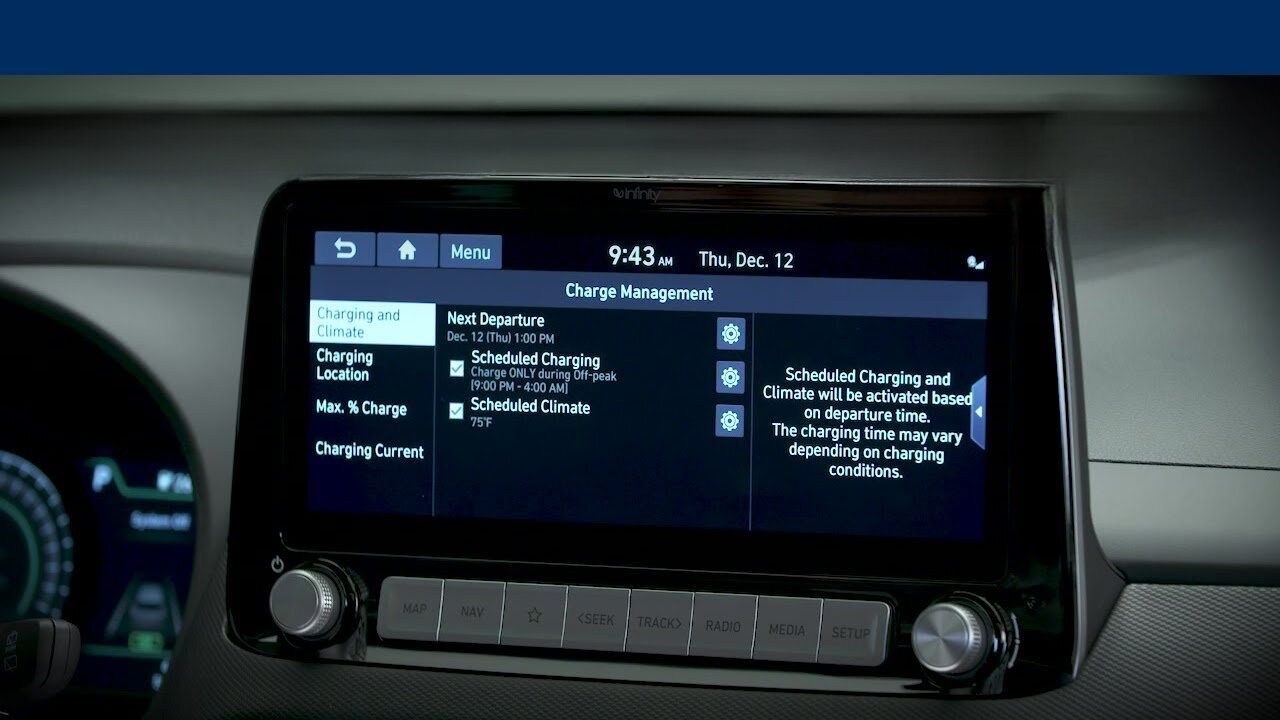
If you're looking to further mitigate the impact of cold weather on your electric vehicle's range, consider parking it in a garage if possible and scheduling a departure time.
Many EV models offer this feature, which can significantly improve efficiency.
For instance, if you leave for work at the same time every day, you can program your EV to be ready when you are, with a warmed-up battery and climate system set to your desired preferences.
Whether you prefer a seat heater on full blast or a defroster set to 68 degrees, it's all up to you! And the best part? This feature uses electricity from your house instead of depleting the battery.
When shopping for an electric vehicle, look for one that offers scheduleable departure times. Your anxiety (and extremities) will thank us!
6. Plan Things out
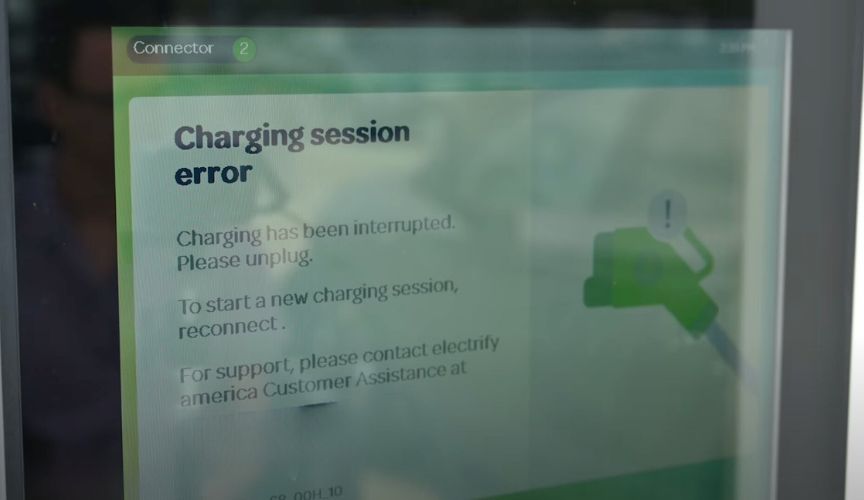
Planning road trips in an EV can be stressful, especially if you live in rural areas with fewer charging stations, and you're not always sure if they'll work as advertised. We've been there!
Planning your route and being aware of alternate charging locations can make life a lot easier when you're far from home.
Many electric vehicles offer automatic route planning that does most of the work for you, but it's still a good idea to verify where you need to stop and charge before hitting the road.
Services like Zap Map are highly recommended. Additionally, apps like PlugShare use crowdsourced data so you can know if a charger is working or not.
If you haven't already, it's also a smart idea to install smartphone apps for the charging networks you need to use and sign up for their services beforehand.
That way, you won't be forced to register while on the road using dodgy public Wi-Fi.
According to Elmo Drive, these are the 12 best UK-based EV apps to reduce electric vehicle anxiety.
Electric Vehicles Available
There are several manufacturers who are currently offering electric cars in the UK, providing a wide range of options for drivers who are looking to make the switch to a more sustainable and eco-friendly vehicle.
However, here at JT Hughes, we may be a little biased towards the electric car models that we offer.
After all, we believe that the Kia, Hyundai, and Honda, electric cars that we sell are some of the best on the market!
Kia EV 6GT
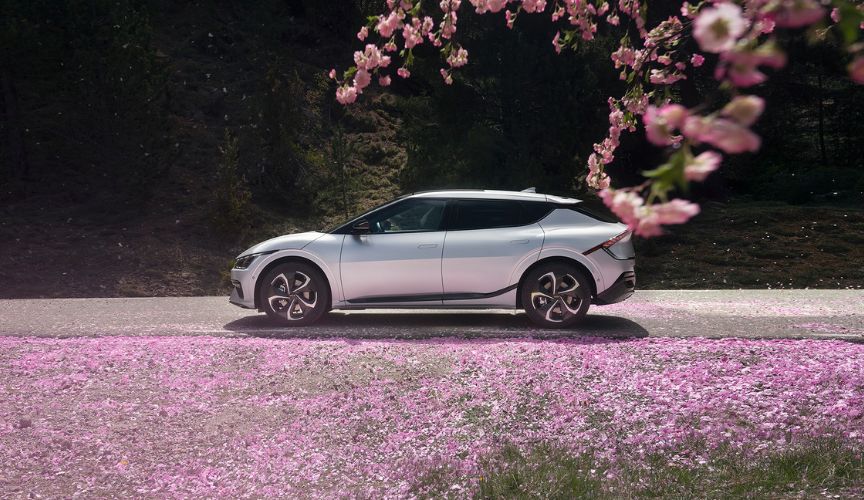
This all-electric crossover SUV has a EPA-rated estimated range of 232 miles; the larger, long-range battery is EPA-rated at up to 310 miles.
It has flexible charging from 10% to 80% in 10 minutes (estimated)
Kia Niro EV
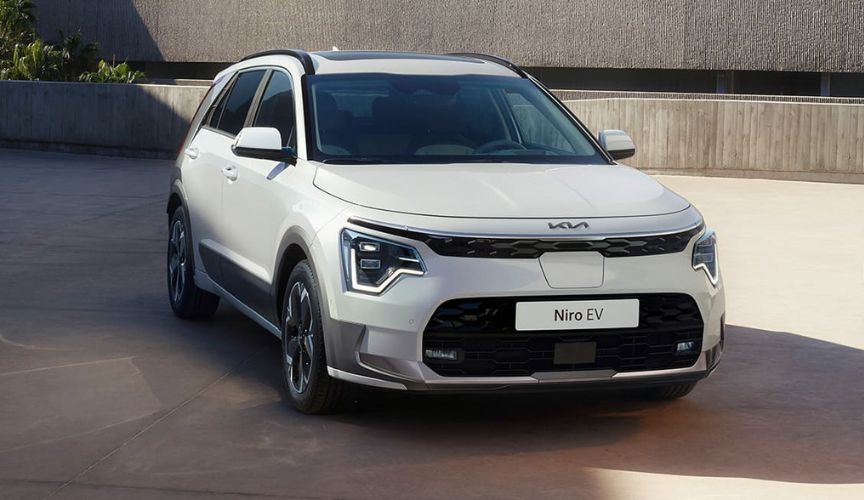
The Kia Niro EV is a versatile and practical all-electric SUV with a range of up to 282 miles on a single charge.
If you connect to a public rapid charger, then you can expect an 80% charge in around 44 minutes.
Kia Soul EV
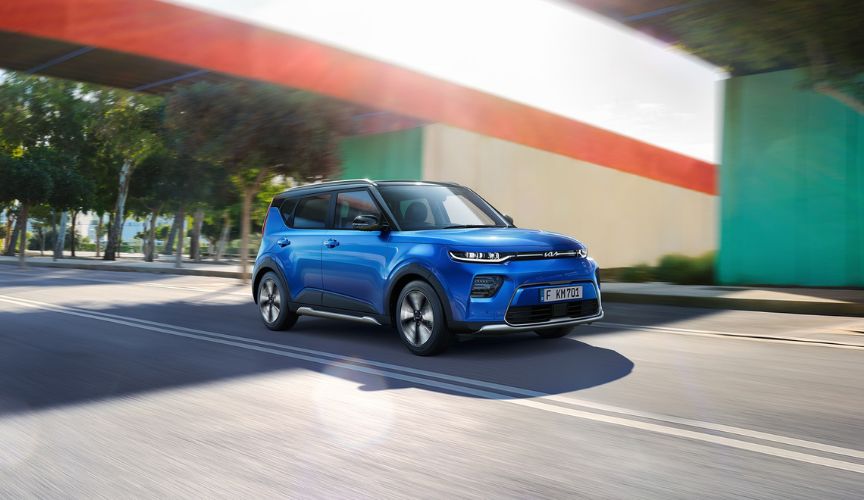
The Kia Soul EV is a spacious and comfortable all-electric SUV with a range of up to 280 miles on a single charge.
Charge your Kia Soul EV quickly and conveniently using its ultra-fast charging inlet at home, or at a Combine Charging System (CCS) public station for charging speeds of 20 to 80 percent in 42 min.
Plus, programme your home charging schedules at home remotely and take advantage of a winter warm-up mode that readies your battery for maximum efficiency in cold weather.
Hyundai IONIQ 5
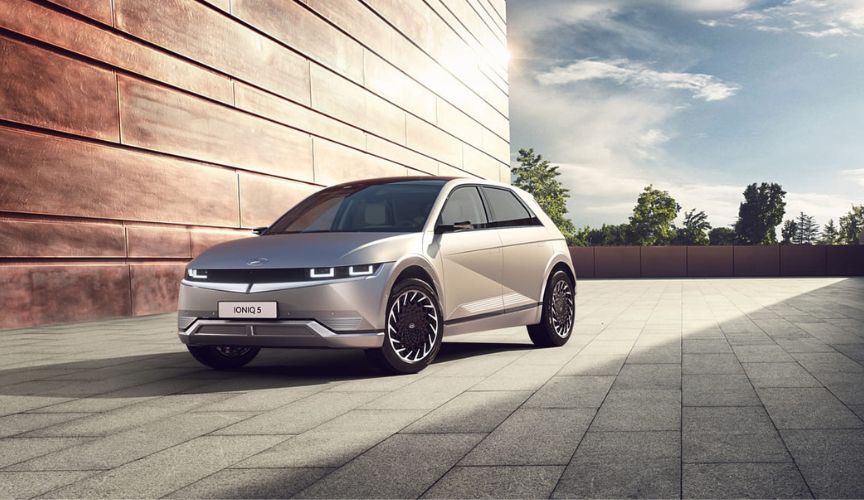
The Hyundai IONIQ 5 is a cutting-edge all-electric crossover SUV with a range of up to 298 miles on a single charge.
The Hyundai Ioniq 5 is one of the fastest charging electric vehicles on the market today, boasting an 800-volt charging capability.
It can go from 10% to 80% state of charge in as little as 18 minutes when connected to a 350-volt DC fast charger.
Hyundai Ioniq 6
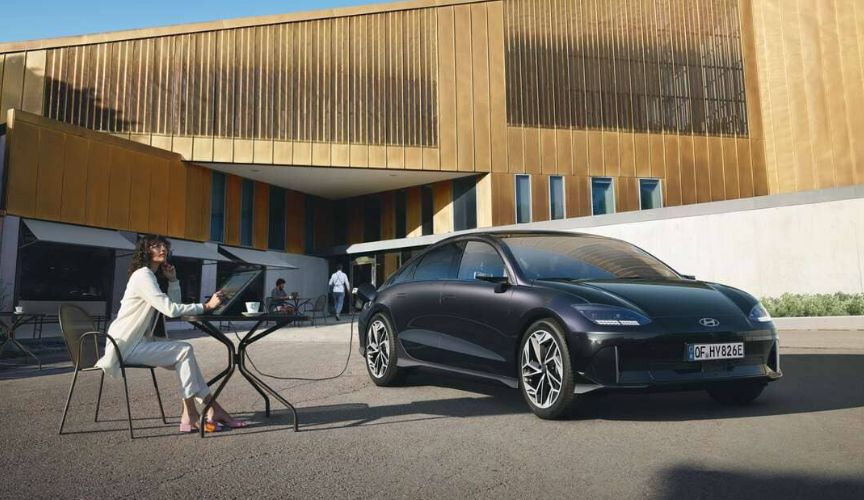
The Hyundai IONIQ 6 has an estimated range 338 miles and benefits from ultra-fast charging in just 18 minutes (estimated)
Hyundai Kona Electric
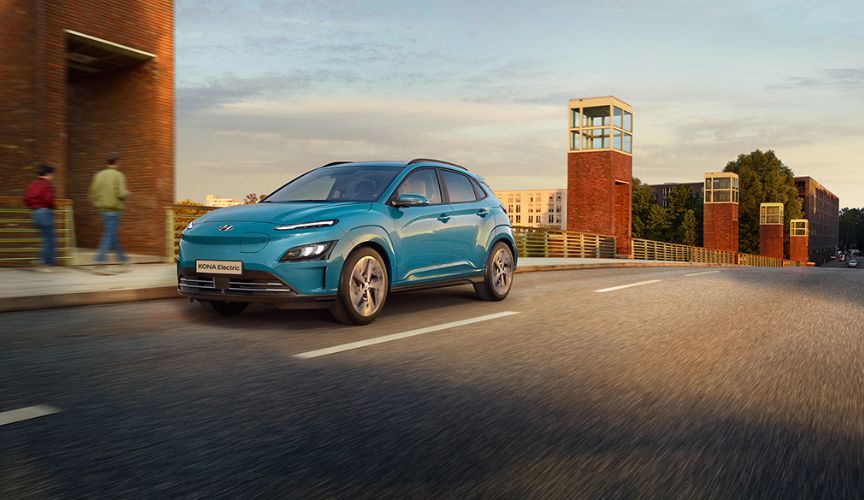
The Hyundai Kona Electric is a popular all-electric SUV with a range of up to 300 miles on a single charge.
If you connect to a public rapid charger, then you can expect to charge around 40/50 minutes
Honda e
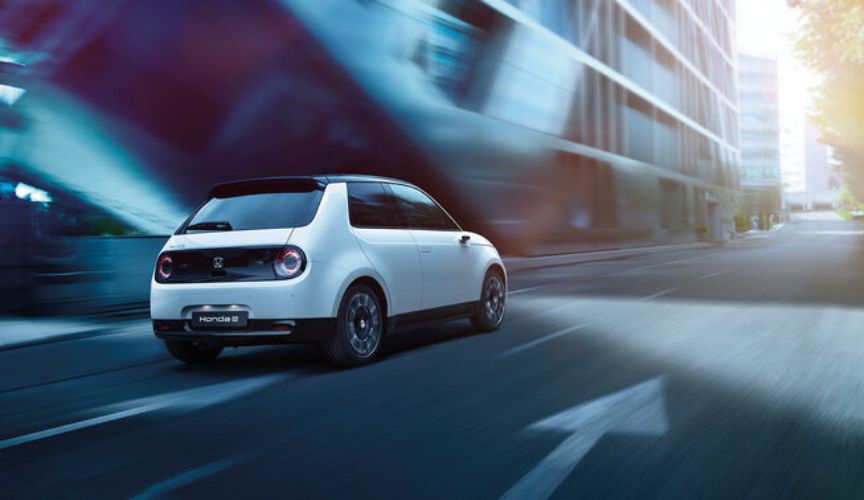
The Honda e is a compact and stylish all-electric city car with a range of up to 137 miles on a single charge.
Charging is done using a Type 2 connector and the on-board charger has a maximum power of 6.6 kW.
This charges a fully depleted battery back to full in around 5 hours 15 minutes. Charging the car using a regular wall plug will take around 14 hours 45 minutes.
Frequently Asked Questions
Here are some of the most frequently asked questions about range anxiety and electric cars:
What causes range anxiety?
Range anxiety is caused by the fear of running out of battery power while driving an electric car.
This fear can be due to a combination of factors, including the limited range of electric cars compared to petrol and diesel-powered cars, the lack of charging infrastructure in some areas, and longer charging times.
Is range anxiety real?
Yes, range anxiety is a real concern for many drivers considering electric cars.
The fear of running out of battery power while on the road can be a significant barrier to the wider adoption of electric vehicles.
Do electric cars not have enough range?
Electric cars generally have less range than petrol and diesel-powered cars, although this is changing as battery technology improves.
Some electric cars on the market, such as the Kia EV6GT and Hyundai Kona Electric, have ranges of over 300 miles on a single charge.
Will electric cars get better range?
Yes, electric cars will continue to get better range as battery technology improves.
In the coming years, we can expect to see electric cars with even longer ranges and faster charging times.
Why are people afraid of electric cars?
People may be afraid of electric cars for several reasons, including concerns about range anxiety, unfamiliarity with the technology, and the perception that electric cars are less powerful or less convenient than petrol or diesel-powered cars.
Why are people so against EV?
Some people may be against electric vehicles because of concerns about range anxiety, perceived inconvenience or lack of familiarity with the technology, and concerns about the environmental impact of battery production and disposal.
Why are electric vehicles becoming more popular in the UK?
Electric vehicles are becoming more popular in the UK due to a combination of factors, including increasing concern about the environmental impact of petrol and diesel-powered cars, improvements in battery technology, and government incentives such as grants for purchasing electric cars and free parking in some areas.
How many UK drivers have range anxiety?
It's difficult to estimate how many UK drivers have range anxiety, as it can vary depending on individual factors such as driving habits and access to charging infrastructure.
However, surveys have shown that range anxiety is a significant concern for many UK drivers considering electric cars.
Conclusion
To help mitigate range anxiety you should.
- Get an EV that can go more miles than you need.
- Get an EV with a heat pump-based HVAC system.
- Pay attention to the impact that wheels and tyres can have on your range.
- Plan ahead and be aware of weather conditions.
- Look for an EV with a scheduleable departure times feature.
- Plan your long trips.